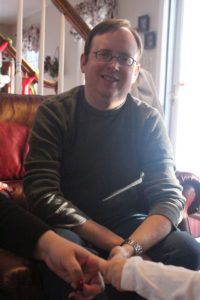Family Life, Writing
Trippin’
My family is setting out on a cross-country road trip that takes us almost as far as you can go in the continental United States, from Massachusetts to Southern California. We have a bunch of stops staked out along the way to see sights and spend time with friends, but we don’t have a lot of “must do” on the agenda. I realized as I was planning this trip that it is very similar to how I approach writing a novel.

I know the beginning point, the endpoint, and a few “stops” in between. But the precise path I will take to get to these places and the characters I will encounter along the way are a mystery when I start writing. I’ve found that if I know too much about the journey ahead of time, I lose interest in taking it.
Some writers fly almost entirely by the seat of their pants, and they are aptly named “pantsers.” They start with a premise and begin writing with no idea of how the story will turn out. They wait for the characters to tell them the ending. I am in awe of these writers because this whole enterprise sounds terrifying to me. What if the characters never reveal their secret? My book would have no ending!
Other writers are “plotters” who map out every twist and turn before they begin the tale. They take satisfaction in having the bones of the story in place so that they know it will have good structure. They may do full character bios so that they understand their people deeply before writing about them. I admire these folks completely and often wish I could be more like them because the whole business sounds so reassuring. The story is all right there in the outline! All you have to do is hang some words on it! Writers who pen stories rapidly often swear by this method. There is no hem-hawing over a blank page in the morning. The outline tells you exactly what scenes are in front of you that day.
I am, alas, a hybrid of these two groups. The optimist would say I get the best of both worlds, whereas the pessimist would say I get the worst. I say it depends on which day you ask me. I can’t imagine setting out on a long journey, whether that’s a 3000-mile road trip or a 300-page novel, with no sense at all of where I’m headed. I need a destination. I have to know whodunit and why. Likewise, I can’t bear the tedium of having every road mapped out in advance. Where are the surprises? The unexpected stops or character developments you never saw coming? So I am left with my approach, which is to do a rough sketch with a clear beginning, a definitive ending, and a mostly murky middle.
Today we prepare to set out from Boston, and in September, we’ll be in Los Angeles. What happens in between is anybody’s guess! As long as no one is murdered at any point in this story, we’ll count it as a success.




